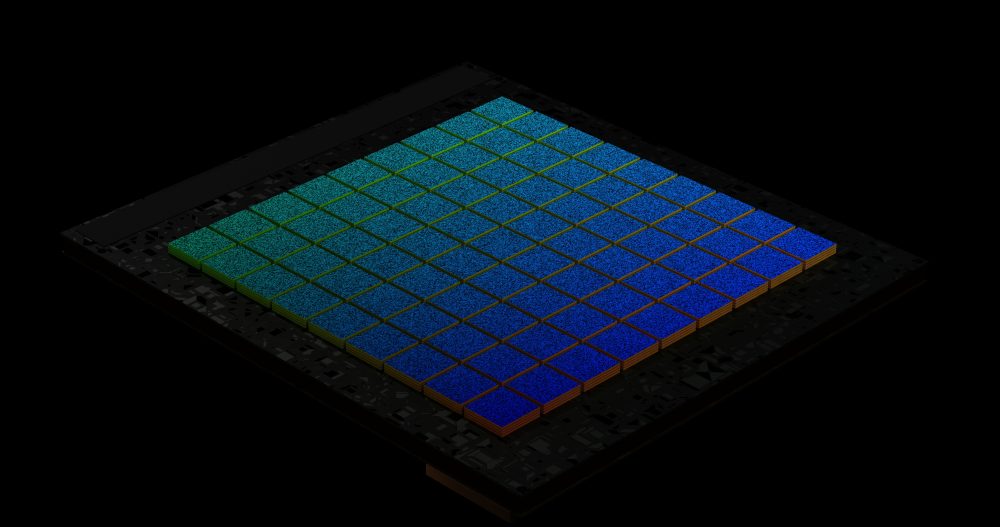 EMERGING TECH
EMERGING TECH
 EMERGING TECH
EMERGING TECH
 EMERGING TECH
EMERGING TECH
Snowcap Compute Inc., a startup that plans to make processors from semiconducting materials, has raised $23 million in funding.
Playground Global led the seed investment with the participation of Cambium Capital and Vsquared Ventures. In conjunction with its announcement of the raise today, Snowcap disclosed that former Intel Corp. Chief Executive Officer Pat Gelsinger has joined its board.
Palo Alto, California-based Snowcap is led by CEO Michael Lafferty. He previously headed Cadence Design Systems Inc.’s More than Moore group, which focuses on emerging technologies such as quantum computers. Lafferty’s two co-founders, Chief Science Officer Anna Herr and Chief Technology Officer Quentin Herr, were previously scientific directors at the IMEC research lab.
“Superconducting logic lets us push beyond the limits of existing CMOS technology, achieving orders-of-magnitude gains in processing speed and efficiency,” Lafferty said. “That performance is essential for the future of AI and quantum computing.”
When electrons pass through a processor’s transistors, they produce heat. The same is not true for superconducting materials. Electrons don’t generate any heat when they travel through a superconductor, a property that Snowcap hopes to harness to make data centers more efficient.
The heat generated by the electricity inside processors has to be removed by cooling them. Today, the cooling equipment used to that end accounts for a significant percentage of data centers’ power consumption. Because the flow of electricity through superconducting materials doesn’t generate any heat, using such materials to make chips could significantly reduce data centers’ cooling requirements. That, in turn, would lower data centers’ power usage.
According to Reuters, Snowcap estimates that processors made using its superconducting technology will be 25 times more power-efficient than today’s “best chips.” The company plans to make artificial intelligence accelerators optimized for both inference and training workloads. Furthermore, it believes that the technology could also be used to make other types of chips such as central processing units.
Snowcap’s chips will reportedly use a material called niobium titanium nitride. It’s made by combining nitrogen with niobium-titanium, an alloy primarily used to make superconducting magnets. Such magnets can be found in systems such as particle accelerators and MRI machines.
Superconducting magnets are made by shaping a piece of niobium-titanium into a wire and then winding the wire into a coil. When the metal is in the shape of a coil, it can produce significantly more powerful electromagnetic fields than otherwise. That’s necessary for many of the use cases to which the technology is commonly applied.
Superconductivity emerges in materials such as niobium-titanium only when they’re cooled near absolute zero. According to Snowcap, its engineers will achieve that using standard helium-powered cryogenic equipment.
Helium is the go-to choice for cooling superconductors because it becomes liquid near absolute zero, which is useful for removing heat. Helium is also chemically inert, which means that it doesn’t cause any chemical reactions in the devices it’s meant to cool.
Snowcap has also disclosed that its chips will use Josephson junctions. A Josephson junction is a nanostructure that some quantum computer companies use to make qubits. It comprises two superconducting devices separated by a thin layer of insulating, or nonconductive, material. Running a current through a Josephson junction allows electrons to jump through the insulating layer, a property that can be harnessed to carry out computations.
Snowcap claims to have addressed several of the technical challenges involved in using superconductors to make chips. As a result, the company says, its processors can be made in existing fabs using standard 300-millimeter wafers. That removes the need to build new production lines, which should reduce manufacturing costs.
Snowcap reportedly expects to produce its first chip by the end of 2026. The product, which is set to feature a “basic” design, will be followed by more advanced systems down the line.
Support our mission to keep content open and free by engaging with theCUBE community. Join theCUBE’s Alumni Trust Network, where technology leaders connect, share intelligence and create opportunities.
Founded by tech visionaries John Furrier and Dave Vellante, SiliconANGLE Media has built a dynamic ecosystem of industry-leading digital media brands that reach 15+ million elite tech professionals. Our new proprietary theCUBE AI Video Cloud is breaking ground in audience interaction, leveraging theCUBEai.com neural network to help technology companies make data-driven decisions and stay at the forefront of industry conversations.